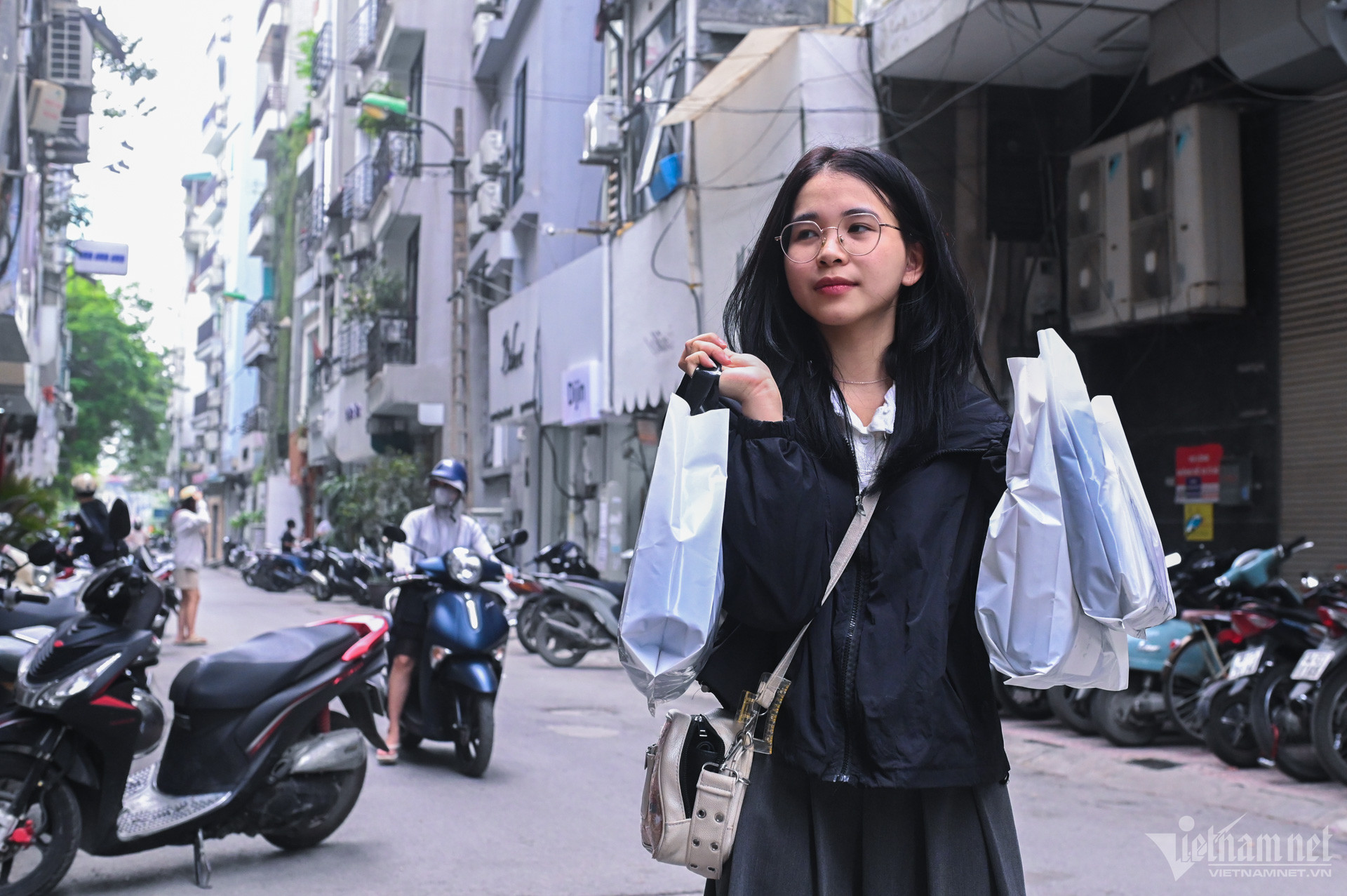
It was 10am on a recent Sunday in Hanoi. Nhu Ngoc and her child went to her family-run fashion shop, where she took care of the boy and wrapped products to deliver to customers.
In general, she doesn’t open the shop on weekends, because there are not many visitors. Clients tend to do online shopping. But on this special Sunday, she had to go to the shop to wrap products and submit orders to shippers to deliver products to customers.
The shop is the sixth retail premise Ngoc has leased. In the latest move, she decided to move her shop which was located on a noisy street to a small alley, and she now has to pay VND4 million instead of VND10 million in rent.
“Sales began going slowly after the Covid-19 outbreak. Lockdowns prompted people to stay at home and order products online, thus helping e-commerce,” she explained.
“Previously, my fashion shop was located near universities and crowded neighboring streets, so it was always full of visitors and the business performed well. I had to hire two workers at that time,” she added.
“But nowadays, as the number of visitors has dropped dramatically and clients have shifted to order products online, the two workers have left and I am now the only seller,” she said.
Revenue from online sales has increased from 15 percent of total sales several years ago to 80 percent now. “The e-commerce development allows customers to seek products online, but many of them still come to shops to see products and try clothes on,” she explained. “In this case, they can buy products offline at online prices."
Asked about her business plan in the future, she said she will give back the retail premises to the landlord this year end and will begin selling all products online.
As there are few customers buying products directly, Ngoc is not too busy now. A working day begins at 10 am and ends at 4.30 pm.
“Nowadays, online sales are the major source of my income. I will sell products from home so won’t have to travel 20 kilometers a day to get into my workplace. This will also help me save money,” she said.
Other shops on fashion streets in Hanoi, such as Chua Boc, Dang Van Ngu and Cau Giay are also no longer as crowded as they were in the past.
Analysts say that the fashion shops run sale promotions year round, not just on holidays or special days. Many shops there often have few customers.
A woman who ran a fashion shop in Chua Boc area some years ago told VietNamNet that in the golden days, she had to pay VND145 million a month in rent for a 90 sq m shop.
On Cau Giay street, which is also a commercial hub, many shops have shut down and shop owners have returned the retail premises to the landlords. Real estate brokers in the area said there are many vacant premises, while rents have been reduced between VND30 million and 100 million.
A saleswoman of a footwear shop said customers can check sizes of products via its website, or they can ask sellers to take pictures of products and send them via Zalo. Her shop allows customers to change products after purchases if the products don’t fit.
The flexible rules allow the shop to attract more customers.
Thuy Hien, 28, an office worker, told VietNamNet that she usually buys things online.
“I have become an online shopaholic. Sometimes I buy things I never use, or clothes that don’t fit me, but I still have the habit of shopping online, because the products are surprisingly cheap,” she said.
Thach Thao